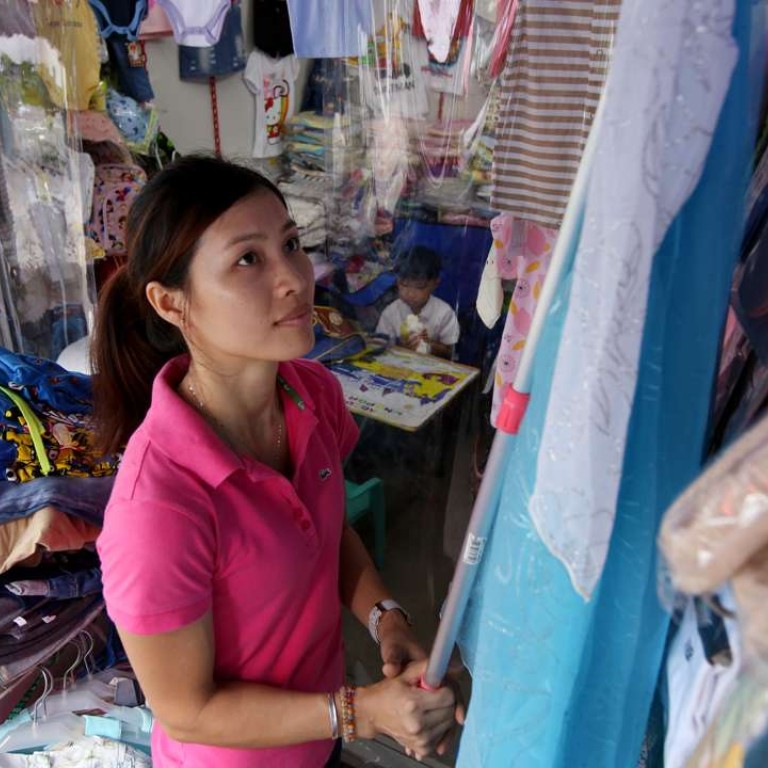
Recognise value of informal labour sector in Hong Kong, says NGO
Operations director Mike Bird says those working in sector need better protection such as a minimum wage, days off and sick leave
It’s about time the contribution “the alternative economy” makes to society is recognised, an international NGO says.
Opportunities in the same informal economy should be explored and expanded, according to the group, Women in Informal Employment: Globalising and Organising.
Whether as hawkers or housewives, helping out with the family store or waste collectors, more than half of the world’s jobs are informal, operations director Mike Bird said.
Bird was in Hong Kong to address a forum on labour at a time when the city’s fast ageing population has become a topic of concern. The workforce is set to steadily decline from 2018 onwards, according to Census and Statistics Department figures.
In the past few years, the government has tried to increase the supply of labour by encouraging women to rejoin the workforce after childbirth, and calling on retirees to find a second career.
However Oxfam Hong Kong’s programme manager, Wong Shek-hung, said it has not been enough.
“There are advantages to an informal economy. There’s flexible working time for example,” she said.
Wong would like the government to start compiling statistics on who participates in the informal sector – those who do not have formal contracts but contribute to the economy. “We need to first understand why people do work informally.”
She said many women help their husbands at work, operate hawker stalls or go part time as they have to look after their families as well.
Kelly Zeng, 30, has been selling children’s clothes for a few years now. After a year as an “on-the-run” hawker selling her wares at the Tin Shui Wai dawn market, she rented a stall there, but is finds it hard to make a living.
“This place isn’t too close to where the people are,” she said.
Hawkers have been campaigning for weekend flea markets on public housing estates in the area, saying they would draw the crowds and create a good atmosphere.
“Mummy doesn’t get to have any holidays when I do. She only has a holiday when it rains,” said Zeng’s four-year-old son, who does his homework at the stall after kindergarten.
“I don’t have plans to ask the government for welfare handouts. I’d like to work,” said Zeng, who brings in a few thousand dollars a month.
In a good month, when her husband can find work, the family have an income of about HK$20,000, but it may easily fall to just HK$10,000.
Wong said if the government is serious about creating work, hawker markets should be allowed to operate.
A report by the NGO, featuring statistics from the International Labour Organisation, found that 33 per cent of people in six Chinese cities – Fuzhou, Guangzhou, Shanghai, Shenyang, Wuhan and Xian – are considered part of the informal economy.
In the rest of East and Southeast Asia, 65 per cent of people work in the informal economy. The figure rises to 82 per cent in South Asia.
Bird said there were dangers if the informal economy was not monitored, as it could lead to labour exploitation.
Ideally, there should be contracts that give workers basic rights such as a minimum wage, days off and sick leave, particularly at a time when outsourcing is proving popular with employers, he said.
